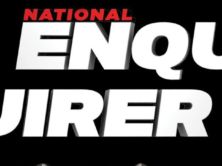Andrew Alexander, public editor for the Washington Post, criticized the Post's bloggers for not following anonymous source policies. (Credit: Washington Post)
The Washington Post’s public editor, Andrew Alexander, criticized Post bloggers for disregarding the Post’s standards on anonymous sources.
“Staff-written news blogs are replete with violations of The Post’s long-established and laudable standards governing confidential sources,” Alexander explained. He noted that even though The Post’s guidelines call for explanatory information as to why the source was granted confidentiality, many Post staffers have blogged citing anonymous sources, but not the reason why.
For an idea of how often the guidelines are violated in Post blogs, Alexander reported that he counted “more than 20 unnamed sources without any explanation of their quality or why they warranted confidentiality” in Post news blogs published during the first two weeks of this month.
The Post’s style guide isn’t available to the public – at least not yet, although Alexander advocates for it to be easily accessible. But, Alexander explained that the “Standards and Ethics” policies requires Post staffers to detail “as much as we can about why our unnamed sources deserve our confidence.”
Further, he noted that anonymous sources may never be referred to just as “source,” under The Post’s editorial guidelines.
Alexander quoted sports editor Matthew Vita, who suggested that the lapse in following guidelines may be attributed to the frequent updating of blogs, at least in the case of sports blogs.
Alexander also sought out the opinions of two journalism ethicists — Stephen J.A. Ward of the Center for Journalism Ethics and Kelly McBride of the Poynter Institute.
Ward advised that “good journalism outlets should apply the same [sourcing] standards” to any medium – blog or traditional news print.
“To do otherwise is to not only violate central principles of responsible journalism but to further blur the already blurry distinction, in the public’s mind, between rumor-mongering Web sites and credible journalism,” Ward is quoted as saying.
McBride argued that while bloggers tend to build a relationship with their audience, the purpose of offering details about from where and whom information came is to convince those readers who don’t have a trusting relationship with the author.
“The reason we source information is not for the people who are likely to already believe it,” McBride is quoted as saying. “It’s for the people who are going to say, ‘No way, that can’t be true.'”
See Alexander’s full column here.
See iMediaEthics’ study of ten major U.S. newspapers (including The Washington Post) and how they handle their blogs here.






Comments Terms and Conditions